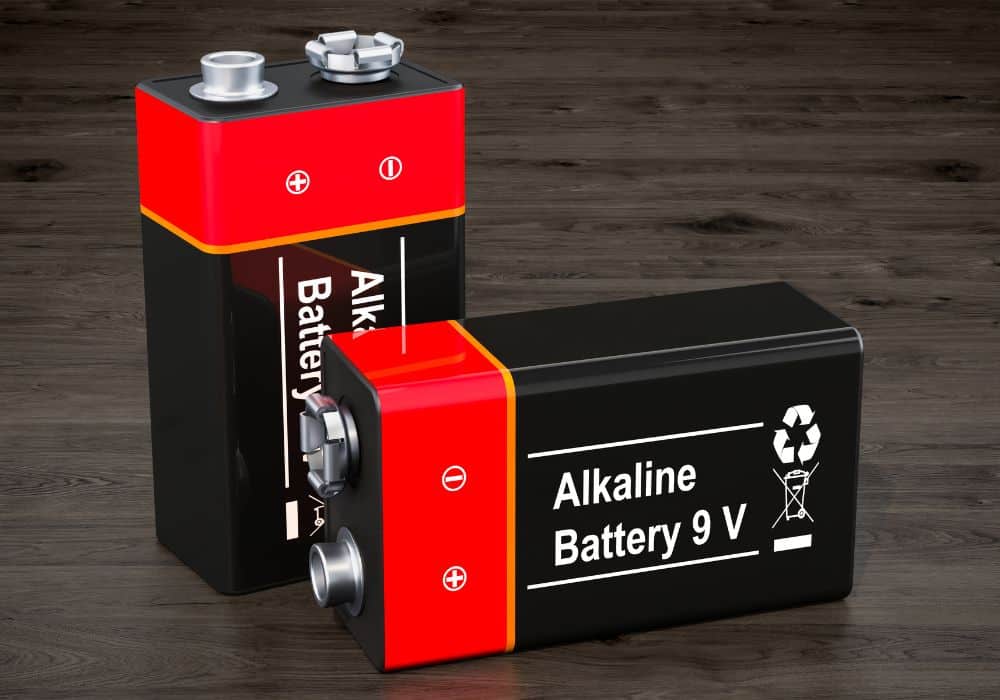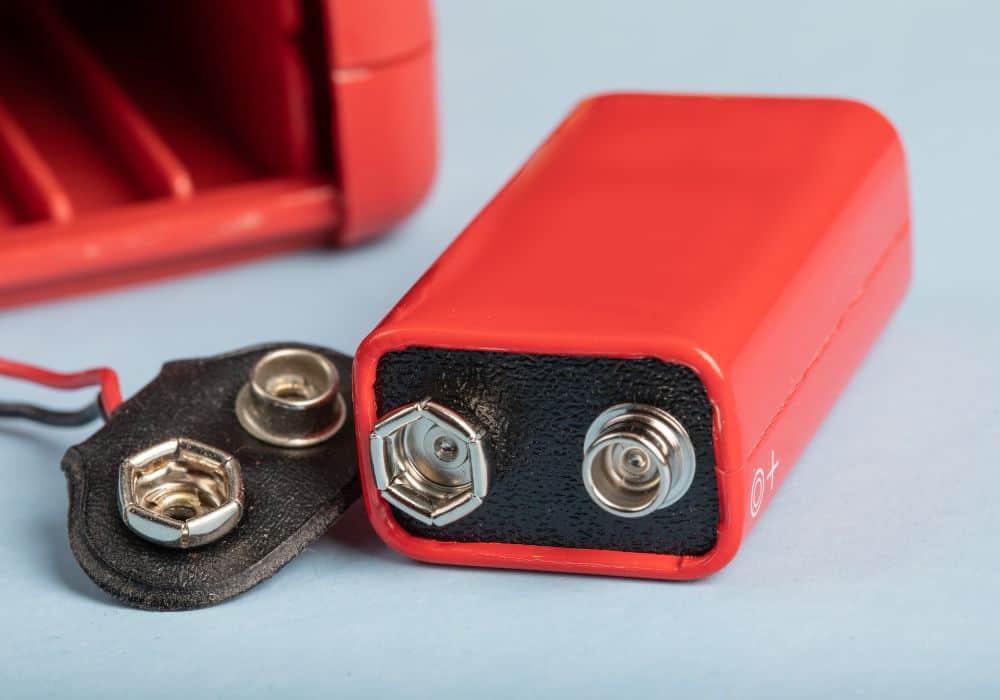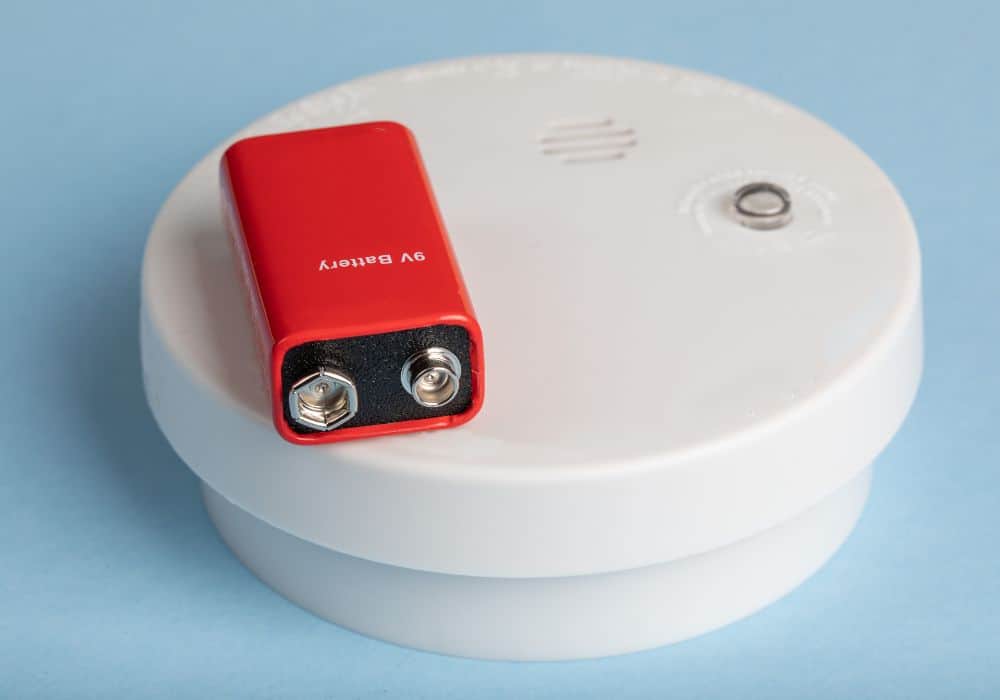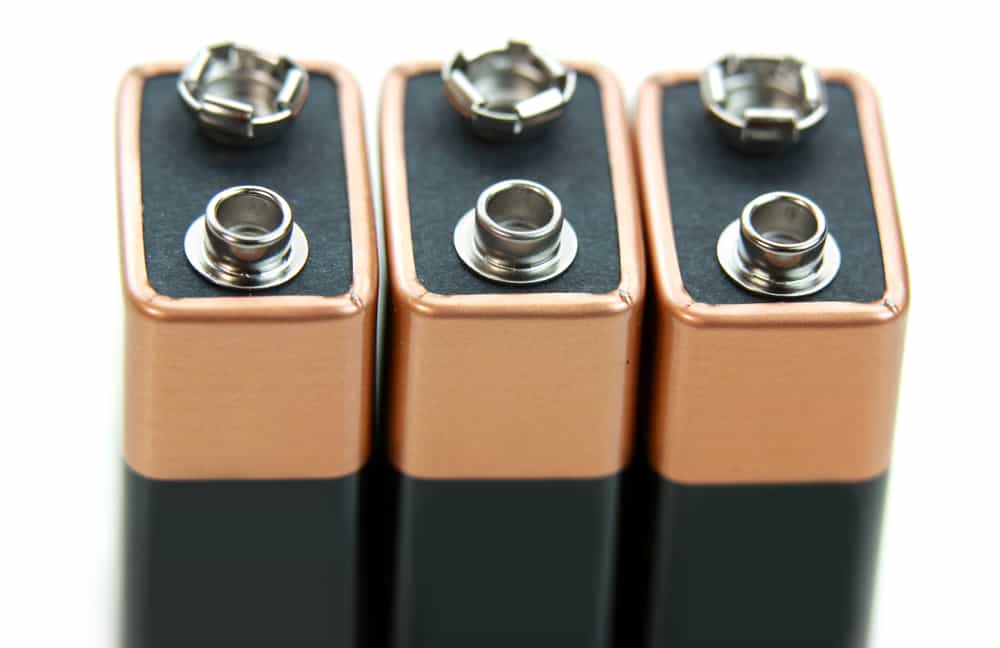There are few battery types that are as easily recognizable as a 9-volt battery, occasionally abbreviated as a “9V battery.” These batteries can be found in grocery stores, hardware stores, and more.
Despite how common they are, most people can’t name what products use these batteries. It’s time to learn about the products that use these batteries, what type of 9V batteries are out there, and why you should have a small supply on hand.
Table of Contents
What devices use a 9-Volt battery?
There are a ton of 9-volt battery uses that make them a remarkably popular pick. Originally, this battery type was used for transistor radios. The most commonly-cited devices known for using 9Vs include smoke detectors, carbon monoxide detectors, walkie-talkies, and electronic toys.
If you love to create geeky stuff, you might also know that a 9-Volt battery is used in lots of different hobbies. They are fairly popular in robotics, portable speakers, and similar usages.
With that said, there are three modern moments where a 9-volt battery is often the standard:
- Smoke alarms – One of the most common reasons for people to buy a 9-volt battery is to power a smoke alarm or a security system. Security sensors generally use this as the go-to.
- Handheld devices – While phones are obviously not going to be 9-volt-powered, there are tons of small handheld devices that rely on them. Data recorders, monitors with LCD displays, and boomboxes are some of the more common ones to cite.
- Medical devices – Surprise! A lot of medical instruments and patient monitors use a humble 9-Volt to power them. Even surgical lighting devices use them!

It’s true. 9-volt batteries came so far from being the simple “radio battery” that people used to think about.
The best way to figure out if you need 9V batteries is to open up the compartment and see if there is a note saying you need them…or if there is already a 9V battery in the device’s casing.
Different types of 9-volt batteries
9-volt batteries aren’t a “one size fits all” type of battery. There are different types that you should be aware of. Here’s what you need to be aware of in terms of the different types of 9-volts out there.
1. Battery shape
When most people think of 9-volt batteries, they tend to think of PP3 batteries. These are square batteries that have terminals on both sides. What people don’t realize is that these are NOT the only type of 9-volt batteries out there.
There are other battery packs that are round, more that are box-like, and some that are even similar to AA batteries. This is why you need to specify the battery’s code when you’re buying them.
Most devices will give come with a paper explaining the specific type of 9-volt battery code you need if it’s not the “transistor radio” type.
2. Alkaline batteries vs lithium batteries
 Yes, there are different chemistries of 9-volt batteries. Alkaline 9-volt batteries are the “old school” type that are typically seen in disposable versions of these batteries. They tend to be lower in capacity with 550 mAh being typical outside of the PP3 battery style.
Yes, there are different chemistries of 9-volt batteries. Alkaline 9-volt batteries are the “old school” type that are typically seen in disposable versions of these batteries. They tend to be lower in capacity with 550 mAh being typical outside of the PP3 battery style.
Lately, lithium-ion 9-Volt batteries have become the more popular option. These often have higher capacity ratings, which means that they can last longer. It’s not uncommon for lithium batteries to carry a capacity of 620 for rechargeables and over 1000 mAh for disposables.
3. Rechargeable vs disposable
Along with the actual chemical makeup of the battery, you also can choose a different type of build. There are rechargeable 9-volt batters and disposable ones.
Rechargeable ones tend to have lower capacities, but can be used repeatedly. Disposable 9-Volt batteries have a higher capacity, but can only be used once. This means that they are good if you have a device that only needs to be used for a single day. If you have a security system that uses 9V, disposable ones will help keep you safer for longer.
Due to the differences in their build and materials, there are often price discrepancies between the two. It’s up to you to decide which battery style is right for you. Most people generally find reusable ones to be the better option.
How much do 9-volt batteries cost?

This can vary from retailer to retailer, brand to brand, and even model to model. With that said, 9-volt batteries are definitely some of the more affordable batteries that you can buy.
Upscale rechargeable 9V batteries can cost as much as $15, but you can usually buy a multi-pack of batteries for anywhere from $8 to $12. This means that a typical battery will have a single-battery cost ranging from $3 to $5.
Tips and tricks for 9-volt battery usage
Now that you know a little bit more about the places that they are used and the different types you can choose from, it’s time to discuss the big issue that most people tend to assume they know everything about: usage.
As it turns out, batteries aren’t always as simple as “plug and play.” If you want to get the most out of your batteries, you’ll keep an eye out for these important tips below:
- Be careful where you buy your batteries from. 9-volt batteries are available from a wide variety of retailers and a wide variety of manufacturers. In recent years, there have been several manufacturers producing low quality and counterfeit batteries. Don’t buy these! They can mess up electronics!
- Always check your rechargeable 9-volt batteries for damage before you charge them. Even though they are rechargeable, you still can end up with battery acid leaks because of wear and tear. If you notice gunk on the terminals, get fresh batteries.
- Read up on the battery capacity of the 9-volts you want to buy. Two different manufacturers can make batteries of similar builds and totally different capacities. If you want to get the most long-lasting batteries, it’s good to find out which manufacturers make the highest capacity batteries.
- Most appliances have their manuals online. Do you have an appliance that requires a battery that doesn’t quite look like a typical 9-volt? Don’t guess it. Check the appliance name online to find its manual, then go shopping for the right battery model you need.

- Learn the maximum use times of rechargeable batteries. NiMH batteries are capable of lasting four hours of continuous use, while a rechargeable lithium battery can last for as long as 7.5 hours. That tidbit of knowledge can prove very useful if you have camping gear that requires a 9V.
- Smoke alarms powered by 9V batteries need to have batteries changed every six months. That’s a good rule of thumb that your firefighter company would like you to know.
- Stock up, but know when to toss them out. Unused 9V batteries have a long shelf life, but that doesn’t means that they are “immortal” on the shelf. Your typical 9-volt battery will last about five years if they are unused and kept in a safe place.
- Keep your batteries in a cool, dry place. This may seem like common sense, but people often end up with dead batteries because they made the mistake of leaving them in their car. Excessive heat can cause your batteries to explode or die prematurely.
- Keep them out of reach of children or pets. More than one doctor bill has been attributed to something along the lines of kids who wanted to snack ona battery. The same can be said for pets.
In conclusion
Even though the 9V battery was invented over 70 years ago, it remains a popular choice for devices of all types. That’s a testament to this battery’s staying power. However, not all 9V batteries look the same, nor can they always be used in the same devices.
If you need a 9V battery that doesn’t look like the PP3 “transistor radio’ type, you may need to look up the battery’s code before you go shopping. Aside from that, keeping a keen eye on battery quality and capacity can help you make the most of your 9V shopping time.
With a little research, you would be surprised at how long those batteries can last. Perhaps that’s the 9V’s true staying power.
